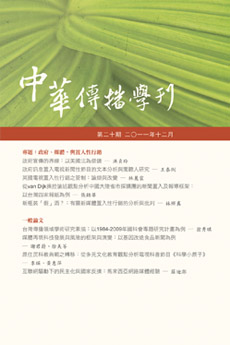 閱覽人數: 2
閱覽人數: 2
December
2011
No. 20
政府、媒體,與置入性行銷
Government, Media, and Product Placement頁數:229 - 269
作者(中)
莊迪澎
作者(英)
Teck-Peng Chang
關鍵詞(中)
互聯網 ; 民主化 ; 馬來西亞 ; 網路媒體
關鍵詞(英)
Internet ; democratization ; Malaysia ; online media
中文摘要
過去許多亞洲國家的統治集團嚴密規管傳統媒體,令其成為國家意識型態機器,異議分子只能經由可能被界定為「非法」,或「合法」但觸達範圍有限的異議書刊傳達意見,但此局面已隨著電腦與互聯網的普及而發生了變化。本文以挑戰國家的輿論與媒體規管效率、促進輿論多元的角度,梳理互聯網促進馬來西亞民主化之貢獻,亦剖析馬來西亞的經濟與政治的變遷,如何催化民眾對互聯網的使用,同時引發國家機關對互聯網構成的「威脅」展開反撲。
英文摘要
In numerous Asian countries, traditional mainstream media have been forced to function as ideological state apparatuses under the tight control of authoritarian regimes. Dissidents can only voice their opinions through so-called "illegal" publications, or "legal" publications with limited circulation. However, because of the widespread use of computers and the Internet, the state can no longer control the marketplace of ideas. This paper analyzes the role and contribution of the Internet in the democratization of Malaysia by challenging the effectiveness of state regulation of the mass media, and promoting pluralism in the public sphere. This study also presents a discussion on how economic and political changes have catalyzed public use of the Internet, and simultaneously prompted the state to launch counterattacks against perceived "threats" of new media.